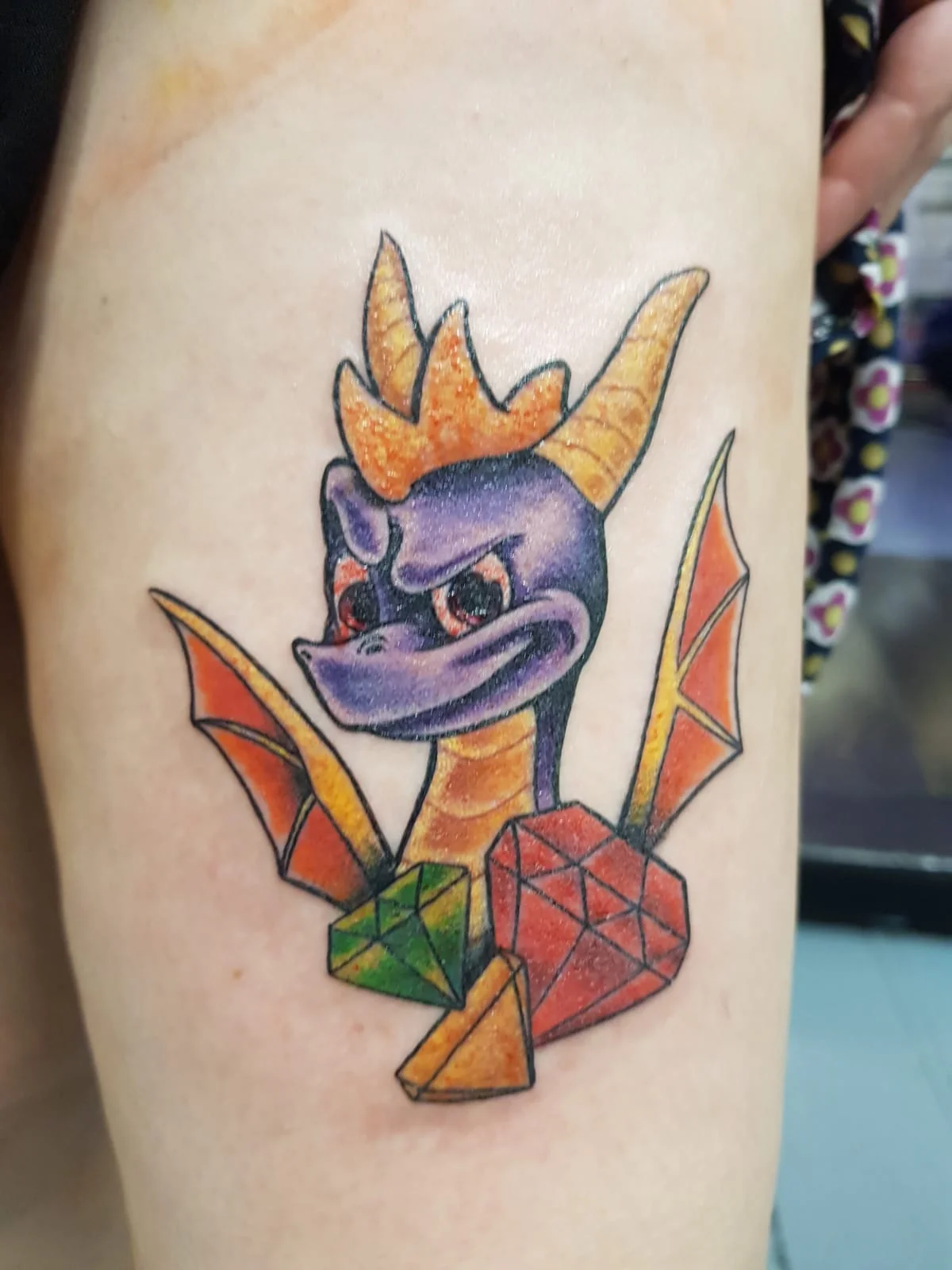
Online tattoo schools offer aspiring tattoo artists the opportunity to learn and hone their craft remotely, providing flexibility and accessibility.
These schools typically offer comprehensive courses covering various aspects of tattooing, including safety protocols, techniques, equipment handling, design principles, and client interactions.
Through video tutorials, lectures, assignments, and interactive modules, students can acquire the knowledge and skills necessary to pursue a career in tattooing.
Key features of online tattoo schools
Flexible Learning
Students can access course materials and lessons at their own pace and convenience, allowing for a flexible learning schedule that fits around existing commitments.
Expert Instruction
Courses are often taught by experienced tattoo artists who share their expertise, tips, and techniques accumulated over years of practice in the industry.
Comprehensive Curriculum
Online tattoo schools cover a wide range of topics essential for aspiring tattoo artists, from the fundamentals of hygiene and safety to advanced tattooing techniques and styles.
Hands-On Training
While theoretical knowledge can be gained through online modules, some schools also offer practical components, such as live demonstrations, hands-on exercises, and simulated tattooing sessions.
Community Support
Many online tattoo schools provide access to forums, discussion groups, and networking opportunities, allowing students to connect with peers, share experiences, and seek advice from instructors and professionals in the field.
Factors to consider when choosing an online tattoo course
When choosing an online tattoo course, several important factors should be considered to ensure you receive quality education and training.
Here are some key factors to keep in mind:
Accreditation and Reputation
Ensure that the online tattoo course is offered by a reputable institution or organization with accreditation or recognition in the tattooing industry.
Research reviews, testimonials, and ratings from past students to gauge the course’s reputation.
Curriculum and Content
Review the course curriculum to ensure it covers all essential aspects of tattooing, including safety and hygiene practices, tattooing techniques, equipment handling, design principles, and client interaction. Look for courses that offer a comprehensive and well-structured curriculum.
Instructor Qualifications
Check the qualifications and experience of the instructors who will be teaching the course. Ideally, instructors should be experienced tattoo artists with a strong portfolio and a track record of successful teaching.
Hands-On Training
Determine whether the course includes practical components, such as hands-on exercises, live demonstrations, and simulated tattooing sessions. Practical training is essential for gaining proficiency in tattooing techniques.
Student Support
Consider the level of support and guidance provided to students throughout the course.
Look for courses that offer access to instructors for questions and feedback, as well as resources such as forums, discussion groups, and networking opportunities.
Flexibility and Accessibility
Assess the flexibility of the course schedule and delivery format to ensure it fits your lifestyle and learning preferences.
Look for courses that offer flexible scheduling, on-demand access to course materials, and compatibility with various devices.
Skills to acquire as a tattoo artist
An online tattoo course can equip you with a range of valuable skills necessary to become a successful tattoo artist.
Here are some essential skills you can expect to learn from such a course:
Hygiene and Safety Practices
Understanding and implementing proper hygiene and safety protocols is crucial in tattooing to prevent infections and ensure the well-being of clients.
You’ll learn about sterilization techniques, sanitization procedures, bloodborne pathogens training, and how to maintain a clean and safe working environment.
Tattooing Techniques
Mastering various tattooing techniques is essential for creating high-quality and visually appealing tattoos.
You’ll learn about different needle configurations, tattoo machine handling, proper tattooing angles and depths, shading techniques, line work, color theory, and blending.
Artistic Skills
Developing artistic skills is fundamental for creating unique and visually stunning tattoo designs.
You’ll learn about design principles, composition, perspective, symmetry, and how to translate clients’ ideas and preferences into personalized tattoo artwork.
Client Interaction and Communication
Building rapport with clients and effectively communicating throughout the tattooing process is essential for client satisfaction and repeat business.
You’ll learn how to conduct client consultations, manage expectations, interpret design requests, and provide guidance on aftercare instructions.
Equipment Maintenance and Troubleshooting
Proper maintenance and troubleshooting of tattoo equipment are essential for ensuring smooth tattooing sessions and prolonging the lifespan of your tools.
You’ll learn how to assemble and disassemble tattoo machines, troubleshoot common equipment issues, and perform routine maintenance tasks.
Business Management and Marketing
If you aspire to run your tattoo studio or freelance business, understanding business management and marketing principles is crucial.
You’ll learn about business licensing and regulations, studio setup, pricing strategies, client scheduling, branding, and marketing techniques to attract and retain clients.
Also read: